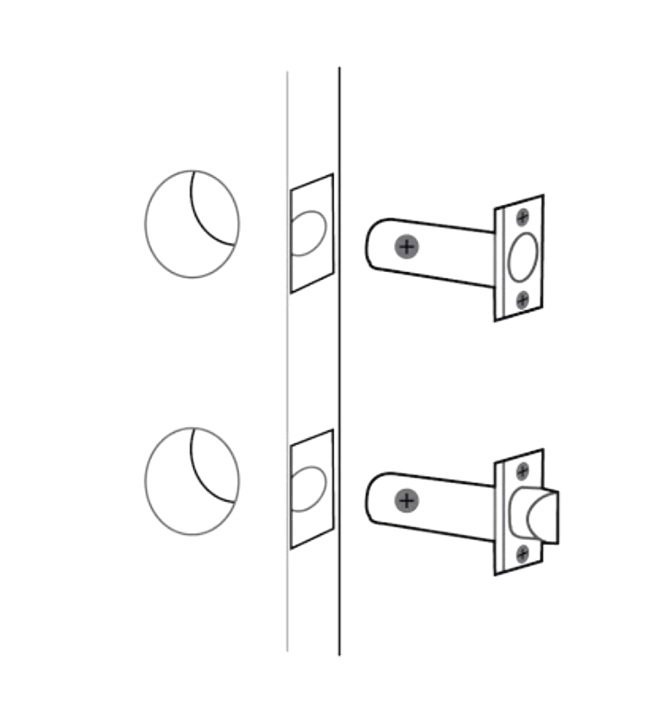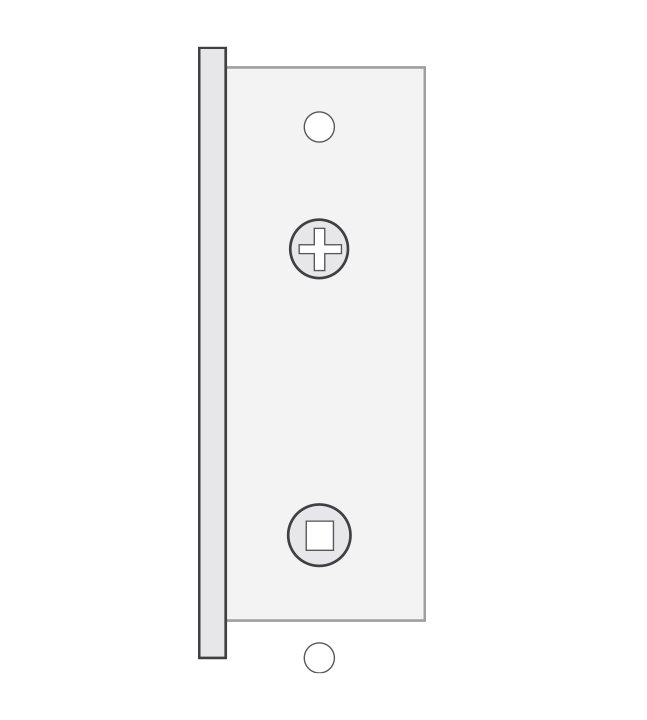
Locks come in various types, each designed to meet specific security needs. Three common types of locks are Tubular, Mortise, and European mortise.

TUBULAR
Tubular locks, also known as cylindrical locks, are commonly used in residential and commercial settings. They are commonly found on residential door hardwares and cabinet hardware. They are easy to install and operate, and are known for their durability and reliability.
Tubular locks have a circular keyhole and a cylindrical body, with pins that match the shape of the key. The key is inserted into the keyhole and turned, which aligns the pins and allows the lock to be opened.
One of the main advantages of tubular locks is their affordability. They are also available in a variety of styles and finishes, making them a versatile option for any type of door. However, tubular locks are not as secure as other types of locks, as they are vulnerable to picking and bumping.

MORTISE
Mortise locks are widely considered to be one of the most secure types of locks. They are commonly used in commercial and high-security settings, and are also a popular choice for residential doors. Mortise locks have a rectangular body that is installed into a mortise, or cavity, in the door.
The lock mechanism is installed inside the body, with a keyhole on the outside and a thumbturn on the inside.
Mortise locks are known for their strength and durability, as well as their resistance to picking and other forms of attack. They are also available in a range of styles and finishes, making them a versatile option for any type of door. However, mortise locks can be more difficult to install and require a professional locksmith.

EUROPEAN MORTISE
European mortise locks are similar to traditional mortise locks. They are commonly found on European-style doors. They are known for their high level of security and are often used in high-end residential and commercial settings.
European mortise locks have a rectangular body that is installed into a mortise in the door, with a keyhole and thumbturn on the inside and outside.
One of the main advantages of European mortise locks is their resistance to picking and other forms of attack. They are also available in a range of finishes and styles, making them a versatile option for any type of door. Like standard mortise locks, European mortise locks have a keyhole and a separate lever or knob. They can also be fitted with multiple deadbolts or hooks, adding extra security to the door. However, their narrow design makes them more suitable for use on thinner doors.
CONCLUSION
Choosing the right type of lock depends on your specific needs and security requirements.
Tubular locks are affordable and easy to install, but may not offer the same level of security as mortise or European mortise locks. Mortise locks are highly secure, but require professional installation. European mortise locks offer a high level of security and are available in a range of styles and finishes, but can be more expensive. Consider your options carefully and choose the lock that best suits your needs.
